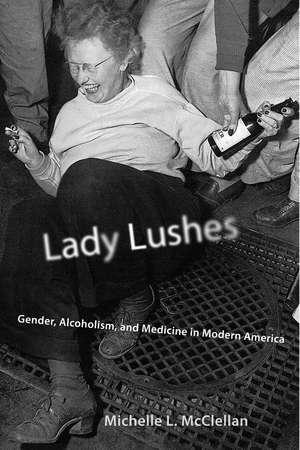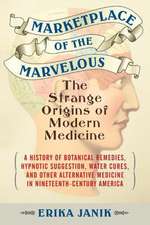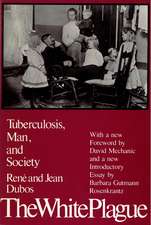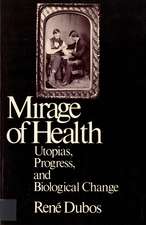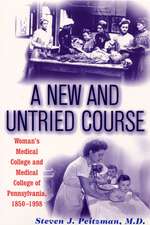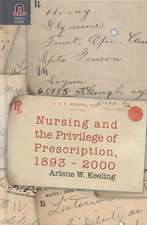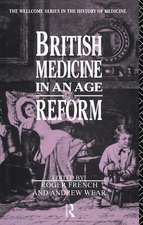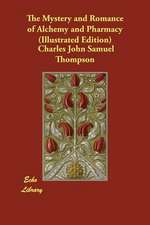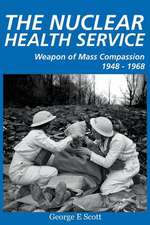Lady Lushes: Gender, Alcoholism, and Medicine in Modern America: Critical Issues in Health and Medicine
Autor Michelle L. McClellanen Limba Engleză Hardback – 29 noi 2017 – vârsta ani
According to the popular press in the mid twentieth century, American women, in a misguided attempt to act like men in work and leisure, were drinking more. “Lady Lushes” were becoming a widespread social phenomenon. From the glamorous hard-drinking flapper of the 1920s to the disgraced and alcoholic wife and mother played by Lee Remick in the 1962 film “Days of Wine and Roses,” alcohol consumption by American women has been seen as both a prerogative and as a threat to health, happiness, and the social order.
In Lady Lushes, medical historian Michelle L. McClellan traces the story of the female alcoholic from the late-nineteenth through the twentieth century. She draws on a range of sources to demonstrate the persistence of the belief that alcohol use is antithetical to an idealized feminine role, particularly one that glorifies motherhood. Lady Lushes offers a fresh perspective on the importance of gender role ideology in the formation of medical knowledge and authority.
In Lady Lushes, medical historian Michelle L. McClellan traces the story of the female alcoholic from the late-nineteenth through the twentieth century. She draws on a range of sources to demonstrate the persistence of the belief that alcohol use is antithetical to an idealized feminine role, particularly one that glorifies motherhood. Lady Lushes offers a fresh perspective on the importance of gender role ideology in the formation of medical knowledge and authority.
Din seria Critical Issues in Health and Medicine
-
 Preț: 267.58 lei
Preț: 267.58 lei -
 Preț: 220.94 lei
Preț: 220.94 lei - 5%
 Preț: 242.73 lei
Preț: 242.73 lei -
 Preț: 184.80 lei
Preț: 184.80 lei - 5%
 Preț: 241.78 lei
Preț: 241.78 lei - 5%
 Preț: 314.84 lei
Preț: 314.84 lei - 5%
 Preț: 292.69 lei
Preț: 292.69 lei - 5%
 Preț: 318.35 lei
Preț: 318.35 lei - 5%
 Preț: 311.37 lei
Preț: 311.37 lei -
 Preț: 287.67 lei
Preț: 287.67 lei - 5%
 Preț: 270.90 lei
Preț: 270.90 lei -
 Preț: 315.48 lei
Preț: 315.48 lei - 5%
 Preț: 293.77 lei
Preț: 293.77 lei - 5%
 Preț: 427.88 lei
Preț: 427.88 lei - 5%
 Preț: 1078.40 lei
Preț: 1078.40 lei - 5%
 Preț: 296.39 lei
Preț: 296.39 lei - 5%
 Preț: 288.29 lei
Preț: 288.29 lei - 5%
 Preț: 298.62 lei
Preț: 298.62 lei -
 Preț: 309.24 lei
Preț: 309.24 lei - 5%
 Preț: 298.77 lei
Preț: 298.77 lei -
 Preț: 312.21 lei
Preț: 312.21 lei -
 Preț: 286.30 lei
Preț: 286.30 lei - 5%
 Preț: 276.52 lei
Preț: 276.52 lei - 5%
 Preț: 305.79 lei
Preț: 305.79 lei - 5%
 Preț: 1079.33 lei
Preț: 1079.33 lei - 5%
 Preț: 299.90 lei
Preț: 299.90 lei - 5%
 Preț: 290.87 lei
Preț: 290.87 lei - 5%
 Preț: 410.09 lei
Preț: 410.09 lei -
 Preț: 259.42 lei
Preț: 259.42 lei -
 Preț: 305.55 lei
Preț: 305.55 lei - 5%
 Preț: 314.32 lei
Preț: 314.32 lei - 5%
 Preț: 262.95 lei
Preț: 262.95 lei - 5%
 Preț: 277.67 lei
Preț: 277.67 lei - 5%
 Preț: 301.72 lei
Preț: 301.72 lei - 5%
 Preț: 280.06 lei
Preț: 280.06 lei
Preț: 1076.59 lei
Preț vechi: 1133.24 lei
-5% Nou
Puncte Express: 1615
Preț estimativ în valută:
206.00€ • 215.66$ • 170.46£
206.00€ • 215.66$ • 170.46£
Carte tipărită la comandă
Livrare economică 05-19 aprilie
Preluare comenzi: 021 569.72.76
Specificații
ISBN-13: 9780813576985
ISBN-10: 0813576989
Pagini: 254
Dimensiuni: 152 x 229 x 23 mm
Greutate: 0.5 kg
Ediția:None
Editura: Rutgers University Press
Colecția Rutgers University Press
Seria Critical Issues in Health and Medicine
ISBN-10: 0813576989
Pagini: 254
Dimensiuni: 152 x 229 x 23 mm
Greutate: 0.5 kg
Ediția:None
Editura: Rutgers University Press
Colecția Rutgers University Press
Seria Critical Issues in Health and Medicine
Notă biografică
MICHELLE L. McCLELLAN is an assistant professor of history at the University of Michigan in Ann Arbor, where she is also the director of the Public History Initiative, Eisenberg Institute for Historical Studies.
Cuprins
Introduction
1 The Female Inebriate in the Temperance Paradigm
2 “Lit Ladies”: Women’s Drinking during the Progressive Era and Prohibition
3 “More to Overcome Than the Men”: Women in Alcoholics Anonymous
4 Defining a Disease: Gender, Stigma, and the Modern Alcoholism Movement
5 “A Special Masculine Neurosis”: Psychiatrists Look at Alcoholism
6 “The Doctor Didn’t Want to Take an Alcoholic”: The Challenge of Medicalization at Mid-Century
Epilogue
Acknowledgments
Notes
Bibliography
Index
1 The Female Inebriate in the Temperance Paradigm
2 “Lit Ladies”: Women’s Drinking during the Progressive Era and Prohibition
3 “More to Overcome Than the Men”: Women in Alcoholics Anonymous
4 Defining a Disease: Gender, Stigma, and the Modern Alcoholism Movement
5 “A Special Masculine Neurosis”: Psychiatrists Look at Alcoholism
6 “The Doctor Didn’t Want to Take an Alcoholic”: The Challenge of Medicalization at Mid-Century
Epilogue
Acknowledgments
Notes
Bibliography
Index
Recenzii
?"?Lady Lushes is an impressive and major contribution to women's studies and the history of medicine in the United States."
"From 'fallen angels' to 'lit ladies,' the drinking women who haunt these pages embody the ambivalence of alcohol. McClellan traces the fluctuations in American expectations, taking pharmacology seriously but situating it squarely within gendered social constraints."
"Lady Lushes provides an important supplement to the established historical insight that affluent white women tend to elicit sympathy while other groups of substance users are vilified. As McClellan deftly demonstrates, although the inebriety paradigm for female alcoholism evoked more sympathetic attitudes than the medical paradigm, neither produced a cure that benefited women."
"[McClellan's] book provides a model analysis for students of the history of identity politics; as such, it could also find a place on intermediate or advanced social history courses. Feminism transformed the ‘therapeutic industrial complex’ after the 1970s, diversifying understandings of addictive experience and including behavioral as well as substance addictions, yet women’s health continues to be under-researched and often under-treated; therefore, intermediate courses on American medicine and society would benefit from inclusion of this work."
"Lady Lushes is a welcome contribution to the social history of medicine and health, as well as to the growing field of drinking studies....This is a ground-breaking study that draws on a range of sources, including historical periodicals, medical journals, letters, self-help guides and institutional records."
Descriere
In Lady Lushes, medical historian Michelle L. McClellan traces the story of the female alcoholic from the late-nineteenth through the twentieth century. She draws on a range of sources—including medical literature, archival materials, popular media, and autobiographical writings of alcoholic women—to demonstrate the persistence of the belief that alcohol use is antithetical to an idealized feminine role.
